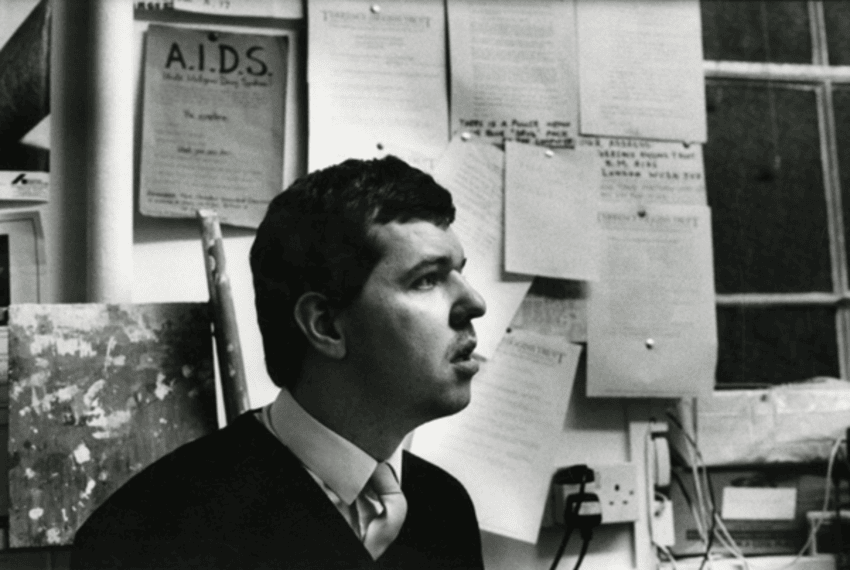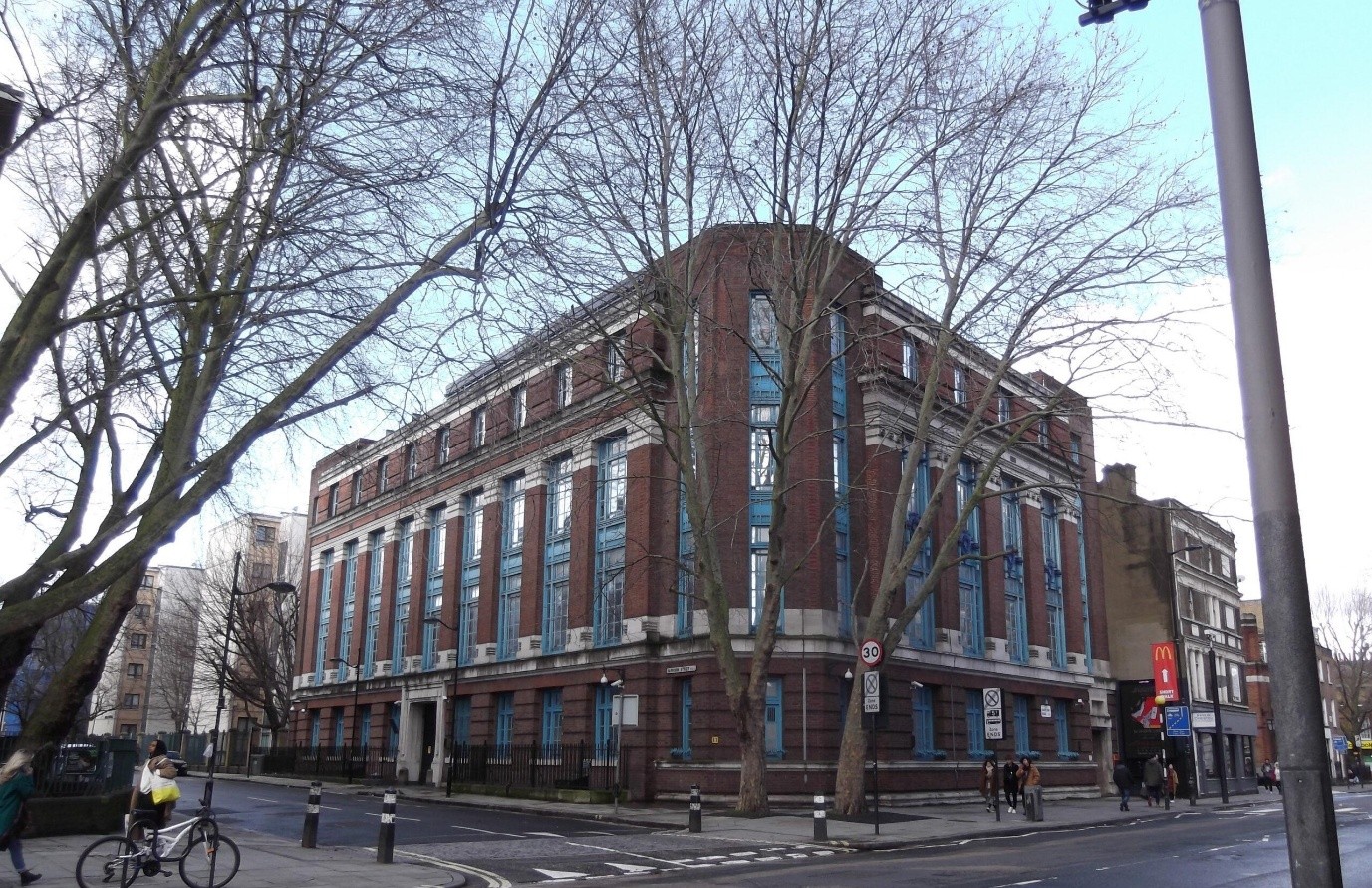In commemoration of what would have been Terry Higgins’ 80th birthday, and all those who have died from HIV-related illnesses, we’re taking a look at how Terrence Higgins Trust and the lives of people living with HIV have changed since the 1980s and 1990s.
Today, we’re looking at how we’ve always been here to provide advice and support to anyone with a question about HIV, from the THT telephone helpline to THT Direct today.
A specific helpline
As the AIDS epidemic took hold in the UK in 1982 and 1983, the London Gay Switchboard received an increasing number of calls seeking advice, support, and help.
Tony Whitehead (our first Chair) was a volunteer at the Switchboard, and Martin Weaver (a volunteer and later our volunteer Press Officer) had also volunteered at college on the student helpline, Niteline.
When Tony started receiving calls at home, both he and Martin realised that Terrence Higgins Trust was uniquely qualified to establish a helpline.

Martin recalls, ‘At the time, there were no dedicated support services. The London Gay Switchboard was receiving more and more calls they couldn’t handle. They didn’t have the number of volunteers, skills, or experience needed to manage the specific AIDS-related inquiries.'
On 14 February 1984, with the help of others, the THT helpline opened and was Europe’s first HIV helpline, with Martin taking the first call.
‘The helpline was a simple, anonymous way for people across the country to get information. It was relatively accessible. So, with leaflets and outreach, we promoted the helpline. It was a straightforward, practical tool that met a real and growing need.’
‘The helpline was different to the London Gay Switchboard, as HIV was a medical issue and sexuality isn’t. The model built on the THT Helpline was to 'be there for everyone', regardless of their sexuality, as HIV and AIDS-related illnesses affect everyone. We’re not just a charity for gay men, we were there for anyone with HIV.'
By 1985, there were 52 volunteer counsellors supporting the helpline, with the requirement of completing at least two telephone shifts a month.
Demand grows rapidly
In addition to counselling, we also offered legal services and funeral arrangements.
With the launch of the Don’t Die of Ignorance campaign in 1986, the accompanying leaflet, sent to every household in the UK in January 1987, listed the THT Helpline as the point of contact for any questions. However, Terrence Higgins Trust only had five incoming telephone lines at the time, and 40 million households had our number.
Once the leaflets were distributed, the telephone exchange at King’s Cross, which served our offices, nearly went 'into meltdown', as Sir Nick Partridge recalls.
By the end of 1986, the Manager of the Exchange, on behalf of British Telecom, wrote to the Health Minister responsible for HIV, the late Baron Tony Newton, outlining that the exchange was at risk of collapse. Not only our calls but calls from the London Gay Switchboard were also routed through the King’s Cross exchange.

As a result, 15 new phone lines were installed in our offices just before the leaflet was sent out, at a cost of £13,500 (just over £39,000 today). The cost was paid for by the Department of Health and Social Security.
To help meet the expected demand, we trained 50 volunteers to cover these new lines, and then calls flooded in at a rate of over 1,000 a week.
Every day we support people living with HIV
Last year, our THT Direct helpline received over 13,000 enquiries, with 58% of these still being calls.
Jackie has been working for THT Direct for many years and says, ‘Every day, we support people living with HIV.

Just yesterday, I took a call from a young man who shared his HIV status with his line manager. The line manager panicked and wanted to tell the whole organisation because they thought they were at risk. I supported the caller in explaining that this would be completely inappropriate and could have legal implications. It just shows that issues of stigma and a lack of knowledge still exist here in 2025.’
Jackie says, ‘We are here to help people living with HIV, whatever the issue may be. Other calls might range from a newly diagnosed person wanting some basic information, a sexual health query, housing issues, emotional help, stigma from family, finances, or medication management – all sorts.’
Sometimes there are peaks in calls due to storylines in TV shows around HIV, like EastEnders (with characters Mark Fowler, Zack Hudson and Drew Peacock living with HIV), It’s a Sin, or I Kissed a Boy.
Stephan, Head of THT Direct, says, ‘These shows are really important for raising awareness of HIV, but other factors like COVID and mpox caused real spikes, as people were completely unaware of how their medications would be affected. During the COVID pandemic, we had to open the helpline again at weekends to manage sometimes.’.
Then and Now: How we help has changed
Advances in medication mean that people can now live long healthy lives and we get calls about ageing with HIV, how to manage it better, how to live a healthy life, and how to meet other older people living with HIV.
Jackie says, ‘In the 80s, there were no effective medications at all, and no way to stop HIV progressing. Fast forward to the 90s, and we had antiretrovirals. Now, people are taking one or two tablets a day.’
For those who aren’t living with HIV, the queries come from a place of curiosity, wanting to know more and helping to educate themselves.
Jackie remember another recent call: ‘You might get someone saying, 'I just met someone who told me they’re living with HIV? Can I get it?' That can lead to a good conversation, helping them understand that someone on HIV medication cannot pass on HIV through sexual activity, and how much things have progressed.’
We stay relevant and up to date with the latest communication methods to enable us to stay in touch with anyone who wants to contact us using email, webchat, and other platforms to take enquiries. Over 20% of our enquiries now come from our webchat service.
Jackie says, ‘I hope that we’ll move towards fewer diagnoses and the end of new cases by 2030. But we’ll still be here to support people living with HIV into old age. I’m also excited to see longer-term treatments for HIV and preventatives like PrEP, especially injectable medication. I’m hopeful we’ll see a cure in the future too.’
It costs £23 to answer a call or enquiry through THT Direct. Will you Do it for Terry, and for all those living with HIV, and give a donation today so we can take more calls from those who need our support?



